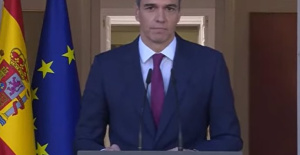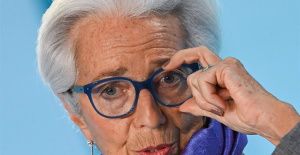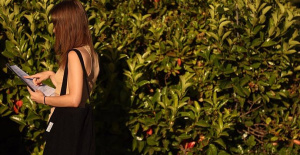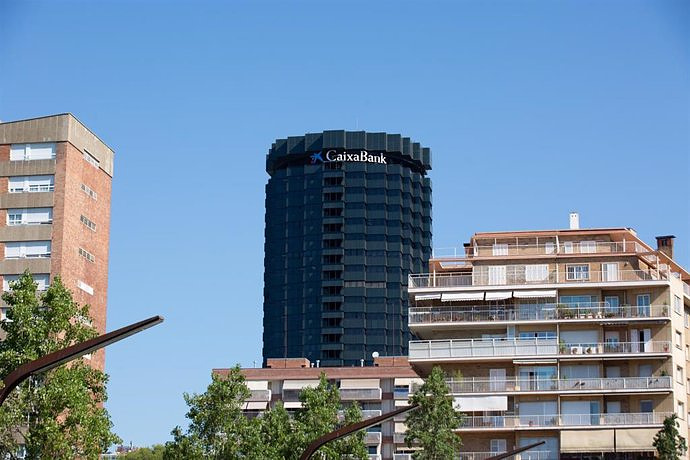MADRID, 17 Dic. (EUROPA PRESS) -
Turnout in the legislative elections held this Saturday in Tunisia was 8.8 percent at the closing of the polling stations, according to official data from the Tunisian Independent Higher Electoral Authority, on a day marked by the call for abstention from the opposition.
The president of the Independent Superior Electoral Authority, Faruk Buaskar, has been in charge of giving the official participation data corresponding to 6:00 p.m., the scheduled closing time of the voting centers, with some 803,000 participants, according to the Tunisian station Mosaique. FM.
Buaskar has attributed this low turnout to a lack of funding from abroad to corrupt political movements and a lack of public resources, as well as recent changes in electoral law.
This participation figure is the lowest since the so-called Arab Spring in 2011 brought about a profound political change in Tunisia after decades of autocratic rule. The vote also coincides with the 12th anniversary of the death of street vendor Mohamed Buazizi, whose death after setting himself on fire in protest of police abuse triggered the wave of protests that shook the entire region.
These anticipated legislatures are the first since the country adopted a new Constitution, promoted by the president, Kais Saied, after arrogating all powers in 2021 and amid opposition complaints for its authoritarian drift, culminating in the opposition boycott of the elections.
Saied announced in July 2021 the dissolution of the Government and the suspension of the Parliament, later dissolved, in the framework of what he described as a response to the protests over the political and economic crisis, unleashing criticism from the Islamist Ennahda party -- the majority in the legislative body-- and other formations and causing alarm among various civil organizations.
Opponents such as the former deputy of the Islamist party Enhadda Saida Ounissi have assured the pan-Arab network that the low turnout in the parliamentary elections is an "important confirmation" of the disinterest of the majority of Tunisians towards the political road map launched by Saied.
"The numbers cannot lie and today was one of the biggest trials to see if the population supports the entire process after the 2021 coup," he added before denouncing the disconnect between the concerns of the President of the Republic and the expectations of the Majority of the population.
"People are concerned about economic problems and social reforms. It's not a problem of institutions or a problem of politics, it's about making economic decisions and this is the conversation we need to have in Tunisia and we're not having it in this authoritarian context. ", he lamented.

 Exploring Cardano: Inner Workings and Advantages of this Cryptocurrency
Exploring Cardano: Inner Workings and Advantages of this Cryptocurrency Seville.- Economy.- Innova.- STSA inaugurates its new painting and sealing hangar in San Pablo, for 18 million
Seville.- Economy.- Innova.- STSA inaugurates its new painting and sealing hangar in San Pablo, for 18 million Innova.- More than 300 volunteers join the Andalucía Compromiso Digital network in one month to facilitate access to ICT
Innova.- More than 300 volunteers join the Andalucía Compromiso Digital network in one month to facilitate access to ICT Innova.-AMP.- Ayesa acquires 51% of Sadiel, which will create new technological engineering products and expand markets
Innova.-AMP.- Ayesa acquires 51% of Sadiel, which will create new technological engineering products and expand markets Sánchez continues | Direct: Sánchez: “I have suffered ‘lawfare’, without a doubt”
Sánchez continues | Direct: Sánchez: “I have suffered ‘lawfare’, without a doubt” Tesla will present its Cybertruck model on May 23 in Madrid
Tesla will present its Cybertruck model on May 23 in Madrid Eurozone inflation is 'stuck' at 2.4% and GDP beats forecasts by growing 0.3%
Eurozone inflation is 'stuck' at 2.4% and GDP beats forecasts by growing 0.3% Former students will be able to recover their internship periods or research training programs as years of contributions
Former students will be able to recover their internship periods or research training programs as years of contributions How Blockchain in being used to shape the future
How Blockchain in being used to shape the future Not just BTC and ETH: Here Are Some More Interesting Coins Worth Focusing on
Not just BTC and ETH: Here Are Some More Interesting Coins Worth Focusing on A spin-off of the UV works on obtaining high-resolution 3D biomedical images in real time
A spin-off of the UV works on obtaining high-resolution 3D biomedical images in real time They create a bank of machinery sounds to prevent breakdowns through artificial intelligence
They create a bank of machinery sounds to prevent breakdowns through artificial intelligence UPV students build a prototype of a wooden house to move to Equatorial Guinea
UPV students build a prototype of a wooden house to move to Equatorial Guinea The UA opens the call for the Impulso 2024 Awards for the best innovative business initiatives
The UA opens the call for the Impulso 2024 Awards for the best innovative business initiatives A million people demonstrate in France against Macron's pension reform
A million people demonstrate in France against Macron's pension reform Russia launches several missiles against "critical infrastructure" in the city of Zaporizhia
Russia launches several missiles against "critical infrastructure" in the city of Zaporizhia A "procession" remembers the dead of the Calabria shipwreck as bodies continue to wash up on the shore
A "procession" remembers the dead of the Calabria shipwreck as bodies continue to wash up on the shore Prison sentences handed down for three prominent Hong Kong pro-democracy activists
Prison sentences handed down for three prominent Hong Kong pro-democracy activists ETH continues to leave trading platforms, Ethereum balance on exchanges lowest in 3 years
ETH continues to leave trading platforms, Ethereum balance on exchanges lowest in 3 years Investors invest $450 million in Consensys, Ethereum incubator now valued at $7 billion
Investors invest $450 million in Consensys, Ethereum incubator now valued at $7 billion Alchemy Integrates Ethereum L2 Product Starknet to Enhance Web3 Scalability at a Price 100x Lower Than L1 Fees
Alchemy Integrates Ethereum L2 Product Starknet to Enhance Web3 Scalability at a Price 100x Lower Than L1 Fees Mining Report: Bitcoin's Electricity Consumption Declines by 25% in Q1 2022
Mining Report: Bitcoin's Electricity Consumption Declines by 25% in Q1 2022 Oil-to-Bitcoin Mining Firm Crusoe Energy Systems Raised $505 Million
Oil-to-Bitcoin Mining Firm Crusoe Energy Systems Raised $505 Million Microbt reveals the latest Bitcoin mining rigs -- Machines produce up to 126 TH/s with custom 5nm chip design
Microbt reveals the latest Bitcoin mining rigs -- Machines produce up to 126 TH/s with custom 5nm chip design Bitcoin's Mining Difficulty Hits a Lifetime High, With More Than 90% of BTC Supply Issued
Bitcoin's Mining Difficulty Hits a Lifetime High, With More Than 90% of BTC Supply Issued The Biggest Movers are Near, EOS, and RUNE during Friday's Selloff
The Biggest Movers are Near, EOS, and RUNE during Friday's Selloff Global Markets Spooked by a Hawkish Fed and Covid, Stocks and Crypto Gain After Musk Buys Twitter
Global Markets Spooked by a Hawkish Fed and Covid, Stocks and Crypto Gain After Musk Buys Twitter Bitso to offset carbon emissions from the Trading Platform's ERC20, ETH, and BTC Transactions
Bitso to offset carbon emissions from the Trading Platform's ERC20, ETH, and BTC Transactions Draftkings Announces 2022 College Hoops NFT Selection for March Madness
Draftkings Announces 2022 College Hoops NFT Selection for March Madness























